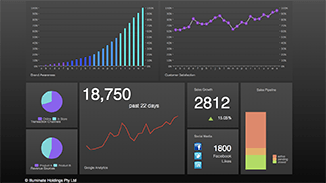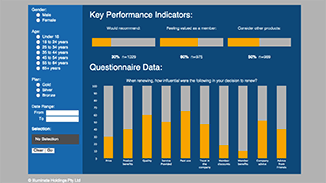newfocus is committed to excellence, innovation and rigorous research methodology. Our record demonstrates that we deliver reliable results on time and within budget, presented in customised state of the art digital formats combined with comprehensive research summaries.
Online communities
In most instances, we still believe getting in front of people provides the richest outcomes for most qualitative projects. Similarly, focus groups generally provide the perfect environment for respondents to engage in dynamic debate, challenge each other and build upon the ideas of others in the group. But what if the people you need to speak to live in different locations/ countries? What if a truly honest response requires anonymity (as for many sensitive topics)? What if you need to capture responses more ‘in the moment’ over an extended period of time?
Our researchers are experienced in designing and using online qualitative research methods such as
- Online focus groups
- Online concept testing/advertising testing
- In depth video interview
- Online user testing
- Online discussion forum, online blog/diaries, online ethnography and many more
The newfocus team have used and implemented these research methods in the past, prior to covid-19, gaining exceptional experience over many years. Therefor, giving newfocus a competitive edge for when traditional research methods are not available. newfocus staff are trained and experienced in all of these areas to ensure we provide our clients with the most relevant online communities (and platforms) that produce the most actionable insights.
Mobile/smartphones applications
As our lives become more and more intertwined with the internet, so too our lives are becoming increasingly mobile. As a result, online experience is being lived more and more ‘in the moment’.
Many traditional forms of research rely on recall, which can, in some instances, have a tendency to inflate perceptions of satisfaction and dilute emotional experience. However, when used in the right context, mobile technology can mitigate these factors through its ability to capture (both qualitative and quantitative) data ‘in the moment’, yielding richer results and painting a truer picture of consumer experience. However, there are many different mobile platforms suited to varying research needs. newfocus’ vast experience in mobile research ensures the correct platforms and applications are utilised for each project, maximising outcomes from this emerging methodology.
Social media
Social media is here, is growing and will continue to affect organisations moving forward and we believe that it is a source of information and data that should not be ignored. Our trained researchers are able to gather this data, collate into themes, filter out unnecessary ‘noise’ and synthesise this mass of data with your overall business position and direction in mind, to provide you with insights that are current, pragmatic and important to enhancing your customers’ experience.
Through integrating findings from more traditional research methods with new methodologies and emerging trends (such as social media), newfocus can effectively work with you towards achieving a holistic view of your business and form a well-rounded understanding as to customer satisfaction, attitudes and perceptions, to assist in shaping the future strategies across your entire organisation.
Interactive Management Dashboards
Leading organisations realise that no longer is the lack of data an inhibitor to business performance. Yesterday’s wisdom was that you can’t manage what you can’t measure, but today the challenge is what do we do with all that data?
Turn data into smart ideas
- real time access to integrated data sources
- interactive – view, drill-down, filter and customise charts, with export function for use in presentations
- instant notifications – be informed when customer expectations are not met and follow-up is needed
- custom designed, easy to use, and delivered in a secure online
Big data
Big data sources such as CRM systems, DIY research, point of sale, web analytics/search measurement platforms, customer data warehouses, mobile analytics and social media are providing organisations with lots of data, but it is rarely used effectively.
The newfocus consulting model is guaranteed to assist organisations gain the ROI they expect from big data, and generate the insights they need to drive their organisation forward quickly, effectively and successfully.
Our seven stage process is:

Predictive analytics
Predictive analytics represent advanced statistical techniques that provide strategic insights about a target group and, as name suggests, make predictions about future trends and outcomes. Predictive analytics are becoming ever more important in market and business decisions and include a range of unique techniques:
- Correlation analysis – involves gleaning into potential associations and their strength between a number of factors in a defined sample. Using this technique, researchers can assess whether any association exists between one’s overall satisfaction with service/product/brand, satisfaction with most recent customer support centre (last interaction) and future brand advocacy.
- Regressions – allow predicting an outcome in a variable of interest (i.e. dependent variable) using a set of predictors, providing strategic insights into factors that need to be addressed to improve organisations’ or brands’ performance. This technique, for example, allows assessing which psychographic or demographic factors impact on customers’ purchase intentions, satisfaction with service, or advocacy.
- Discriminant analysis – a technique similar to a regression analysis, but aimed at predicting an outcome for a categorical dependent variable (i.e. what impacts on customers’ brand preferences, newspaper choice, subscription type etc.)
- Customer segmentation – an exciting analytical tool which identifies significantly different groupings in target audience based on psychographic and demographic factors that can be deployed during targeted marketing communication or new product development to name a few.
Change management
newfocus can help structure workshops to help to begin the process of change based around Edgar Schein’s model of planned change. It is appropriate to begin the process of change at this stage (and not prior) given the assumptions behind the model:
- Any change process involves not only learning something new, but unlearning something that is already present and possibly well integrated into the personality and social relationships of the individual.
- No change will occur unless there is motivation to change, and if such motivation to change is not already present, the induction of that motivation is often the most difficult part of the change process.
- Organisational change such as new structures, processes, reward systems and so on occur only through individual changes in key members of the organisation; hence organisational change is always mediated through individual changes.
- Most adult change involves values and self-images, and the unlearning of present responses in these areas is initially inherently painful and threatening.
- Change is a multi-scale cycle similar to the adaptive coping cycle, and all stages must be negotiated somehow or other before a stable change can be said to have taken place.
While the change process has three core stages, a workshop will aim to assist with the delivery of stage one:
- Stage One: Unfreezing – the creation of motivation to change
- Stage Two: Changing – developing new attitudes and behaviours on the basis of new information and cognitive redefinition
- Stage Three: Re-freezing – stabilising the changes
Behavioural economics
Behavioural economics represents a very exciting growing field which builds upon theories from microeconomics, psychology and neuroscience to understand how different consumer decisions are made. Behavioural economics are applied across different fields, such as finance, policy making and marketing, and offer another level of insights into drivers behind particular choices by looking at irrational behaviour, information availability to name a few.
An example of behavioural economics approach in research includes looking at potential place to buy first house/property. On the one hand, the choice is ration as it involves a substantial capital investment, calculations, investigation and a long-term commitment to a mortgage. On the other hand, the choice is also driven by an irrational component, such as aspirational lifestyle factors or prestige of different areas/suburbs. Marrying these two certainly can yield new and exciting insights into consumer choices and strategic directions for marketers.




